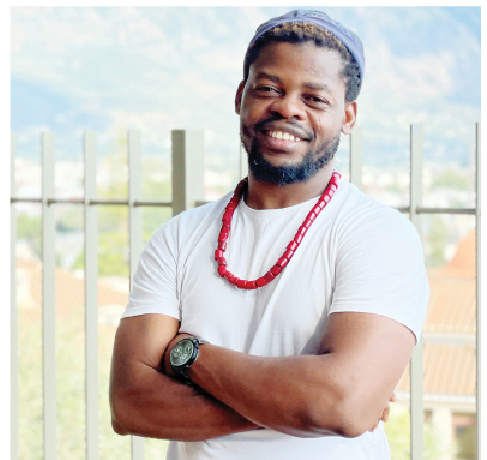Contemporary dancer, choreographer and founder of Q Dancegathering festival and Afropolis, Qudus Onikeku, has a made for the revamp and update of music and education and curriculum in Nigerian higher institutions.
The founder of Q Dance Company, whose platforms Afropolis and Dance Gathering festivals have been redefining the dance sector in Nigeria and Africa, noted in an exclusive interview with LEADERSHIP that to harness the huge potentials in the arts and creative sector, government must consider the overhaul and rejig of available courses in higher institutions.
This, he said is in respect of the current social reality where thousands of Nigerian youths are venturing into music, drama and other arts related field.
Onikeku, who has garnered experience having lived in France for years and taken courses in dance and other related fields, noted that for Nigeria to realize her potential as the biggest black nation in the world and with the largest population of youth in the world, largely within a median age of 18 years, there ought to be a policy encompassing the Ministries of Education, Arts, Culture and Creative Economy, that links ‘the town with the gown’, as far as Nigeria’s entertainment and arts sector is concerned.
“There should be an intentional policy framework executable by the ministry of education and also of the ministry of arts, culture and creative economy to review and create a standardized course in dance, music and related arts in view of the immense opportunities and need for human capacity development in the arts,” noted the dance producer.
He continued, ” I have been saying this for fifteen years and that it’s begun to sound like a broken record. The creative sector is a huge revenue generating sector but government is paying lip service to being involved in its growth. I am a dance artist and have been to many countries. We don’t have dance or Afrobeats music as a Diploma course or standardized course in the tertiary institutions or a College of Arts that teaches the practical and theoretical aspect together, of what the Gen Zs and young ones want to venture into.
“The classical music course and theatre arts being studied for decades in the Universities is no longer relevant to what is obtainable now. People want to follow their passion in comedy, film making, music – Afrobeats, Afro Pop, Afro Hip Hop, even Fuji, Juju, HighLife that has been homegrown to us all through our lifetime. Can we have a college of Arts that teaches the practical and theoretical aspect of Afrobeats, dance genres, 21st century film making as a course of study not theatre arts, this is what research development and innovation does. But are they looking at this? Mohbad whose case is still under investigation, should not have died if there are systems in place that checks the programs and output of record labels which are major ingredients for talents to soar and be honed properly in the music space, and this is just one aspect of the creative sector,” says Onikeku.
Onikeku via his Q Dance Company and The Dance Gathering Lagos has performed a number of local and international shows, including ‘We Almost Forgot’ which has been showcased in Berlin and Lagos. His productions are inspired by the Yoruba traditional culture combining it with several other influences such as the guiding philosophies of hip hop, capoeira, and contemporary dance, to weave a certain understanding of the human condition.
An ambassadors of the arts, the artiste who was one of the three Nigerian artists invited and featured on Nigeria’s maiden appearance at the 2017 Venice Biennale, said that the inspiration to become an artist came to him after listening to Fela Anikulapo’s music during his teenage years. He was also enamoured of Abami Eda’s artistic music composition, that sparked up something in him.
We’ve got the edge. Get real-time reports, breaking scoops, and exclusive angles delivered straight to your phone. Don’t settle for stale news. Join LEADERSHIP NEWS on WhatsApp for 24/7 updates →
Join Our WhatsApp Channel










